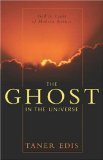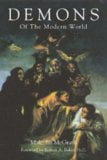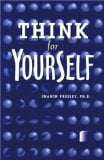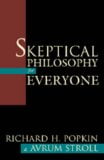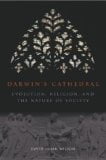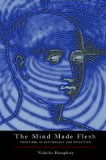 The Mind Made Flesh: Essays from the Frontiers of Psychology and Evolution
The Mind Made Flesh: Essays from the Frontiers of Psychology and Evolution
by Nicholas Humphrey
Oxford University Press, £11.99, ISBN 0-19-280227-5
Perhaps the first thing to be said is that, despite the rather grand subtitle, this is not a textbook on psychology, nor is it a treatise on the scope and limits of the evolutionary approach to psychological theory. It is a collection of the author’s ‘occasional’ pieces – newspaper articles, lectures, radio and television talks, etc. – on a wide range of topics. These include: the nature of the Self, Multiple Personality Disorder, altruism, St Valentine, mediaeval ‘trials’ of animals, Shakespeare’s sonnet LXXXVII, the Mind-Body problem, cave painting, the placebo effect, war, belief in the supernatural … well, you get the idea. Given their different intended audiences, the pieces vary considerably in tone, but all are entertaining and thoughtful.
Although not intended as an academic text, most items are provided with footnotes, which give some guidance towards evidence and possible supplementary reading. The time period covered is rather wide (1979-2000) and this means that some of the pieces refer to events which have lost their immediacy (e.g. his 1987 Guardian article on the US bombing of Libya). Even in these cases, however, Humphrey usually has a telling and controversial point to make.
From the sceptic’s viewpoint, the most rewarding chapters are the 1995 New York lecture on ‘Human Nature and Supernatural Belief ’ and his 2000 lecture in Stockholm on ‘The Evolution of Faith Healing’. For those interested in getting a brief taste of the theoretical approach of evolutionary psychology, this collection contains some useful material (especially the 1987 radio talk, ‘The Deformed Transformed’). Ultimately, however, this is a book for the beach or the bedside. Nothing wrong with that, of course, but anyone who wants a systematic treatment of evolutionary psychology would have to look elsewhere.


